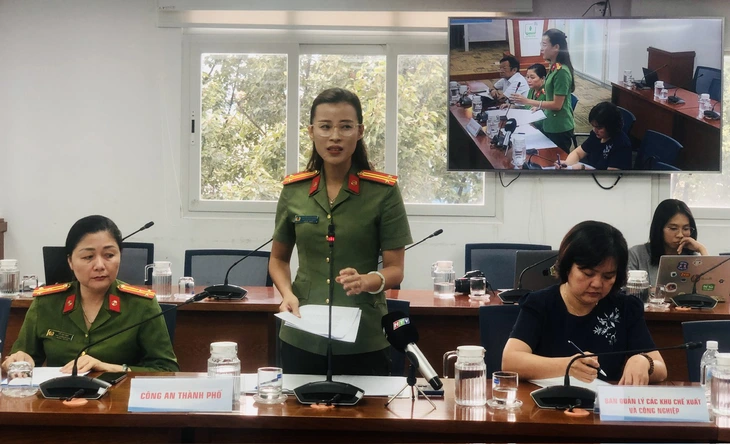Ho Chi Minh City Police have provided initial information about the working session with participants of the short film and music video “Anh em trước sau như một” by the Ngu Ho Tuong group.
On the afternoon of September 25, at a regular press conference, the Deputy Head of the Cyber Security and High-Tech Crime Prevention Department (PA05) of Ho Chi Minh City Police responded to information related to the music video “Anh em trước sau như một” by the Ngu Ho Tuong group.
Working Session Conducted with Ngu Ho Tuong Group
“Upon receiving information that a music group had produced and uploaded content suspected of being related to gambling website advertising, we implemented comprehensive measures to collect and verify information, and simultaneously sent invitations to the singers and relevant individuals involved in the music video.
By September 23, the aforementioned individuals had attended the working session. We have basically consolidated the identified behaviors and will handle the matter promptly, after which official information will be publicly announced to the press,” the Deputy Head shared.
The Deputy Head stated that regarding online advertising, the law clearly stipulates violations related to gambling and gambling advertisement.
If functional authorities can prove acts of collusion, conspiracy, or direct profit-sharing with bookmakers or gambling organizers, the individuals could face criminal prosecution for organizing gambling, as prescribed in the Penal Code.
“This is something we need to emphasize further in communication work to enhance legal deterrence,” the PA05 representative stressed.

The Acting Head of the Electronic Information Department also provided information related to the Ngu Ho Tuong group’s music video “Anh em trước sau như một,” which is suspected of containing gambling website advertisements.
“Advertising gambling for betting websites by exploiting social networks and electronic information sites to propagate, provide, share information, and promote images serving gambling activities or organizing gambling shows signs of legal violation and may be subject to administrative fines ranging from 10 million to 20 million VND.
Additionally, competent authorities will mandate the removal of false, misleading, or illegal information resulting from the violation,” the Acting Head said.

Ung Hoang Phuc and Khanh Phuong Continue to Cause Controversy
Previously, on September 22, the Cyber Security and High-Tech Crime Prevention Department of Ho Chi Minh City Police announced that it had sent invitations to participants of the short film and music video “Anh em trước sau như một” by the Ngu Ho Tuong group for a working session, related to the upload of the MV on social media platforms.
The Ngu Ho Tuong group, consisting of Ung Hoang Phuc, Khanh Phuong, Lam Chan Huy, Duong Ngoc Thai, and Luu Hung, held a press conference to launch the MV “Anh em trước sau như một” on September 18 in Ho Chi Minh City.
However, just three days later, this MV by the Ngu Ho Tuong group became embroiled in intense controversy.
The MV repeatedly featured the logo of a gambling website, leading many to suspect the group was engaged in disguised advertising for the betting site.
On the evening of September 21, Ung Hoang Phuc deleted the controversial MV.






